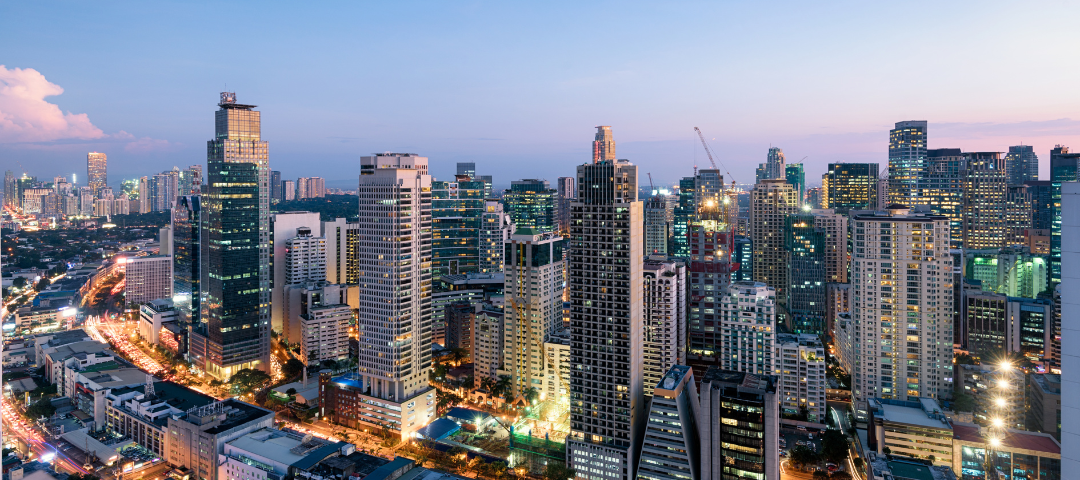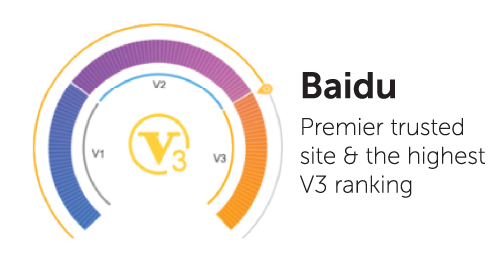Your Trusted
Real Estate Partner in
Netherlands
IQI Netherlands provides comprehensive real estate services and makes your real estate process easy with our professional team
Discover
Your one-stop property solution
Get the latest Property News
Expand your knowledge here!
Sell or Rent property
Have an agent list my property
Global Market Insights
Get detailed property reports and insights across multiple countries
Manage My Deal
Follow up on my buying process
Mortgage Calculator
I want to calculate my budget
Register as a Real Estate Negotiator
I want to be a real estate negotiator in IQI
Our story
Award-winning PropTech Agency

IQI goes beyond conventional boundaries.
With offices in 30+ countries and 60,000+ real estate negotiators and growing, we have a unique perspective into international best practices in real estate, allowing our team to become global real estate entrepreneurs through cross border property investment and transactions.
Countries
Agents
Projects
All-in-one
Connecting you globally
Invest with us
Invest on a platform with over 6 million global properties from more than 111 countries to empower yourself as a citizen of the world.
Advertise with us
Maximise advertising efficiency and lead conversion through our buyers using data.
Testimonials
Hear from our happy buyers
Learn
Tips and Guides
 Philippines Property Market 2026: Where Global Investors Should Look
Philippines Property Market 2026: Where Global Investors Should Look
In recent years, the Philippines has quietly emerged as one of Asia’s most dynamic real estate markets. While markets such as Singapore, Vietnam and Indonesia have captured global headlines, the Philippines presents an opportunity based on strong demographic trends, robust economic fundamentals, favourable policy shifts and a diversified property ecosystem. For international investors seeking higher yields and growth potential in Southeast Asia, Philippine real estate combines stability, long-term demand drivers and evolving regulatory frameworks that make it worth serious consideration. Key Takeaways: The Philippines offers competitive rental returns, with residential yields typically at 4 to 6 percent and prime office assets reaching around 6 to 7 percent, supported by steady urban demand. Policy improvements, including 99-year land lease provisions, have strengthened long-term investment confidence for foreign investors. Growth is no longer limited to Metro Manila. Cities such as Cebu, Davao and Clark, along with suburban corridors like Cavite and Laguna, are emerging as high-potential investment zones. Success in the Philippine market depends on strategic location selection, proper legal structuring and working with experienced on-ground professionals to manage risk and maximize returns. Here's why investor choosing Philippines?Solid Economic Growth Is Fueling Property DemandPolicy Reform Creates New Investment PathwaysResidential Property Remains a Core Investment OpportunityCommercial Real Estate Is StrengtheningIndustrial and Logistics Real Estate Is Emerging as a High Growth SegmentMixed-Use and Tourism-Linked Investments Capture Diverse IncomesWhere Investors Should Look Today5 Key locations investors should focus on include:Practical Investment ConsiderationsA Market With Both Income and Growth PotentialWhat’s Next for Investors in the PhilippinesFrequently Asked Questions Solid Economic Growth Is Fueling Property Demand The foundation of any real estate market is the strength of the underlying economy. The Philippines has one of the youngest and fastest-growing populations in Asia, with a median age of around 25.8 years. This demographic trend underpins healthy household formation, ongoing urbanization and sustained demand for housing, commercial spaces and infrastructure-related assets. In 2025, residential property prices in the Philippines rose approximately 1.9% compared to the previous year. This might seem moderate, but it reflects stabilisation after the pandemic and a resilient recovery amid global economic challenges. Long-term forecasts are more compelling. Market research from IMARC Group estimates that the Philippine real estate market is poised to grow from roughly USD 94.4 billion in 2025 to over USD 135.9 billion by 2034 at a compound annual growth rate of around 4.1 percent. This consistent growth trajectory is supported by continuing demand across major property segments. Policy Reform Creates New Investment Pathways One of the biggest developments shaping foreign investment sentiment is the extension of long-term land leases for foreign entities. Previously, foreign investors could only secure land leases for a maximum of 50 years. In 2025, the Philippines introduced legislation permitting 99-year land leases for certain types of investment projects. This reform directly addresses one of the longstanding barriers for non-nationals by allowing long-term capital planning, enhanced financing options and greater confidence for developers and institutional investors. This policy is especially relevant for industrial, logistics, master-planned communities and large mixed-use developments. With a longer lease horizon, asset managers and institutional investors can better model cash flows, financing costs and exit strategies. Residential Property Remains a Core Investment Opportunity Residential real estate continues to attract both local and foreign capital due to strong rental demand and ongoing urban expansion. Metro Manila and other major urban centres such as Cebu and Davao have experienced meaningful, if measured, price appreciation. Condominiums in central business districts remain popular with young professionals, expatriates and rental tenants seeking proximity to employment, lifestyle amenities and international schools. Rental yields for residential property in Metro Manila commonly range between 4.0% and 6.0%. While these yields may be lower than some industrial assets, they represent stable income streams in a market where rental demand remains robust. In smaller or emerging urban areas outside the capital region, rental yields can sometimes be higher, reflecting pent-up demand and more affordable acquisition costs. Mid-sized residential units, particularly those targeting workforce populations and first time renters, have also shown strong occupancy levels. Smaller units tend to enjoy stronger effective yields because they appeal to a broader tenant base and often command higher rent per square metre relative to larger units. Commercial Real Estate Is Strengthening The commercial real estate sector, particularly office space in prime locations, has seen renewed confidence as business process outsourcing (BPO) and information technology sectors expand their footprint. Key business districts such as Makati, Bonifacio Global City (BGC) and Ortigas continue to sustain demand for quality office space from both multinational corporations and shared workspace operators. Prime office assets have delivered competitive rental returns, with some institutional reports indicating yields near 6.9% for high-quality stock in core business districts. Retail spaces also benefit from rising consumer spending, though occupancy levels and lease-rate growth vary by location and tenant mix. Combined, commercial property offers diversification beyond residential investments and is particularly appealing for long-term institutional money. Industrial and Logistics Real Estate Is Emerging as a High Growth Segment One of the most notable shifts in the Philippine property landscape is the rapid growth of industrial and logistics real estate. The rise of e-commerce, improvements in infrastructure and the Philippines’s strategic location in Southeast Asia have elevated demand for warehousing, distribution centres and logistics hubs. Industrial properties often deliver attractive risk-adjusted returns because they capitalise on structural demand drivers rather than cyclical trends. With global supply chains looking for alternative nodes in Asia, the Philippines is benefiting from increased foreign direct investment in manufacturing and cross-border trade logistics. Key industrial corridors near ports and airports, particularly around Clark and Subic, are gaining attention from institutional investors and developers seeking to build modern logistics ecosystems. Mixed-Use and Tourism-Linked Investments Capture Diverse Incomes The Philippines is not just about homes and offices. Large master-planned developments that combine residential, retail, office and leisure amenities present interesting opportunities for investors who are targeting recurring income streams and capital appreciation. Tourism-linked hospitality assets have also strengthened as international travel rebounds. Destinations such as Boracay, Clark, Cebu and Panglao have seen improvements in hotel occupancy rates and profitability. While tourism demand can be seasonal, these markets show promise for investors looking to diversify portfolios through hospitality and resort investments. Investment Returns in Context Investment decisions are ultimately driven by returns. In the Philippines, gross rental yields across different property segments provide a useful snapshot of income potential: Property SegmentTypical Rental Yield RangeMarket InsightsMetro Manila Residential4.0% to 6.0%Stable demand from urban tenantsNational Average ResidentialAround 5.23%Reflects broader urban and provincial trendsPrime Office PropertyAround 6.9%Strong demand in core business districtsIndustrial/LogisticsVariable but often above averageDriven by e-commerce and supply chain demand These yields are gross figures and should be considered alongside costs such as financing expenses, property management, taxes and currency considerations. Net yields will vary depending on how assets are structured and financed. Where Investors Should Look Today Location remains one of the most decisive factors in Philippine real estate investment. While the market offers opportunities across multiple regions, performance varies significantly depending on economic activity, infrastructure connectivity and demand drivers. Investors who align their strategy with these fundamentals are more likely to achieve stable income and long-term capital appreciation. The Philippine market is no longer concentrated in a single city. While Metro Manila continues to anchor the economy, growth is increasingly distributed across regional centres, suburban corridors and strategic industrial zones. This diversification allows investors to tailor their exposure based on risk appetite, yield expectations and investment horizon. 5 Key locations investors should focus on include: Metro Manila (Makati, Bonifacio Global City, Ortigas)The country’s financial and commercial core, offering strong rental demand, established infrastructure and high liquidity. These districts remain suitable for investors prioritising income stability and exit flexibility. Cebu City and Davao CityLeading regional urban centres supported by population growth, expanding service industries and ongoing infrastructure development. These cities present opportunities in both residential and commercial segments. Suburban Growth Corridors (Cavite, Laguna, Rizal, Bulacan)High-growth residential markets benefiting from urban spillover, improved transport connectivity and more affordable land prices. These areas are well positioned for long-term appreciation as housing demand shifts outward. Clark and SubicStrategic industrial and logistics hubs driven by airport access, economic zones and supply chain expansion. Particularly attractive for investors focused on industrial, warehousing and logistics assets. Tourism-Oriented Regions (Cebu, Boracay, Panglao, Clark)Markets linked to domestic and international travel recovery, offering diversification through hospitality, mixed-use and lifestyle-related developments. Practical Investment Considerations Foreign ownership rules still apply, including restrictions on land ownership. Investors typically participate through long-term leases, corporate structures or REIT (real estate investment trust) vehicles that hold eligible assets. The evolving legal framework has created more secure avenues for capital deployment in recent years. Financing costs and macroeconomic conditions should also be weighed carefully. Interest rates, currency volatility and tax regimes can impact investment returns, especially when financing is mixed across jurisdictions. Investors considering Philippine property should conduct rigorous due diligence, consult local legal and tax experts and build models that account for local market nuances. A Market With Both Income and Growth Potential For international investors, the Philippine property market balances income-producing opportunities with long-term capital growth potential. Demographic momentum, policy improvements like the 99-year lease provision, an expanding commercial ecosystem and the rise of logistics and mixed-use developments make the Philippines a market worth active consideration in 2026. Whether you are considering core office assets, residential portfolios, logistics facilities or integrated developments that blend lifestyle and income streams, the Philippines offers a multi-layered investment landscape that is increasingly connected to global capital flows. What’s Next for Investors in the Philippines For global investors, the Philippine property market is moving into a more mature and opportunity-driven phase. The coming years will not be defined by speculation or rapid price spikes, but by strategic positioning. Investors who understand where demand is forming, how policy reforms are reshaping foreign participation, and which asset classes align with long-term economic growth will be best placed to benefit. What matters next is selectivity. Prime locations with strong employment bases, infrastructure connectivity and rental demand will continue to outperform. Residential assets in core cities will remain relevant for income stability, while industrial, logistics and mixed-use developments are increasingly where long-term capital growth will be created. As decentralisation accelerates, secondary cities and suburban corridors are likely to play a bigger role in investment portfolios. Timing alone is no longer the key advantage. Structure, location and local execution are. With extended lease frameworks, improving transparency and rising institutional participation, the Philippines is becoming more accessible to international capital than ever before. However, success will depend on informed decision-making, realistic yield expectations and working with experienced on-ground professionals. For investors looking beyond saturated global markets, the Philippines offers a compelling mix of income, growth and diversification. The next phase belongs to those who move early, invest wisely and position themselves for the country’s long-term urban and economic transformation. Frequently Asked Questions Can foreigners buy property in the Philippines? Yes. Foreigners can legally buy condominium units, provided foreign ownership in the building does not exceed 40 percent. Land ownership is restricted, but foreign investors commonly invest through long-term leases (up to 99 years), corporations, or REITs. What types of property do foreign investors prefer in the Philippines? Foreign investors mainly invest in condominiums in major cities, office properties in business districts, and industrial or logistics assets. Residential units are popular for rental income, while industrial properties attract investors seeking long-term structural growth. What rental yields can investors expect in the Philippines? Residential properties typically generate 4 percent to 6 percent gross rental yields, while prime office and commercial assets can reach around 6 percent to 7 percent, depending on location, asset quality and tenant demand. Which locations are best for property investment in the Philippines? Metro Manila remains the core investment market. Other high-potential locations include Cebu, Davao and Clark, supported by infrastructure development, economic expansion and growing population demand. Suburban provinces like Cavite and Laguna are also popular for long-term growth. What should foreign investors be cautious about when investing in the Philippines? Foreign investors should consider currency risk, local tax rules, and regulatory compliance, including ownership limits. Market performance varies by location, making due diligence and local professional advice essential before investing. Thinking about investing in the Philippines?Leave your details and an IQI agent will guide you through the market with clarity and confidence. [custom_blog_form] Continue reading: Make Malaysia Your 2nd Home: 8 Property Trends to Watch in 2026 for Better Opportunities and Affordability Klang Valley Property Market Insight: Opportunities and Challenges India’s Retail Revolution: Transforming Real Estate and Shaping the Future of Urban Development Reference and Source Links Philippine residential property price trends (TradingEconomics)https://tradingeconomics.com/philippines/residential-property-prices Philippines real estate market size and growth forecast (IMARC Group)https://www.imarcgroup.com/philippines-real-estate-market 99-year land lease policy news for foreign investors (Reuters)https://www.reuters.com/markets/asia/philippines-extends-land-leases-99-years-attract-foreign-investors-2025-09-05 Philippine commercial real estate market insights (Cushman & Wakefield)https://www.cushmanwakefield.com/en/philippines/news/2025/08/philippine-real-estate-market-shows-resilience-and-growth-in-q2-2025 Metro Manila rental yields and market discussion (BusinessWorld)https://www.bworldonline.com/property/2025/12/30/721458/metro-manila-rental-yields-may-stay-flat-in-2026-analysts National rental yield averages (Global Property Guide)https://www.globalpropertyguide.com/asia/philippines/rental-yields Local property demand shifts and regional performance (Philippine Star)https://www.philstar.com/the-freeman/cebu-business/2025/12/31/2497851/navigating-downcycle-property-market-shifts-rebuilding-2026
Continue Reading
 RM 140 Billion Bandar Malaysia: Is This KL’s Next Growth Corridor?
RM 140 Billion Bandar Malaysia: Is This KL’s Next Growth Corridor?
Version: BM TLDR: Bandar Malaysia is a proposed RM140 billion redevelopment that could become one of the largest urban transformation projects in Kuala Lumpur. With its transport-led masterplan and phased development approach, it is positioned as more than a typical project. The key question is whether it can function as a new KL growth corridor that supports long-term expansion and connectivity Large urban projects often begin as plans on paper before they gradually reshape the city around them. At first, many people are unsure what they will become. Over time, some of these developments change how areas function, how people move, and where businesses grow. Now, attention is turning to Bandar Malaysia. With an estimated value of RM140 billion, it is positioned as one of the largest redevelopment plans in the capital. For many Malaysians, the name is familiar but still unclear. Is it simply another mega project, or could it influence where and how Kuala Lumpur grows next? Key Take Aways Bandar Malaysia is a RM140 billion redevelopment on the former Sungai Besi site The masterplan focuses on transit-oriented design and phased development It is structurally larger than TRX and different from KL Sentral and Mid Valley Surrounding areas may benefit gradually if connectivity improves Execution and transport delivery will determine whether it becomes a true growth corridor Understanding Bandar Malaysia: Key Areas We Explore What Is Bandar Malaysia and Why Does It Matter? The Strategic Location and Connectivity Edge How Bandar Malaysia Compares to Other KL Mega Projects 1. Compared to Tun Razak Exchange 2. Compared to Kl Sentral 3. Where Bandar Malaysia Stands Today What Could Drive Long-Term Growth? Potential Impact on Surrounding Property Markets Key Risks and Considerations So, Is This Kuala Lumpur’s Next Growth Corridor? FAQ What Is Bandar Malaysia and Why Does It Matter? Bandar Malaysia is a large-scale redevelopment of the former Sungai Besi airbase site, covering one of the last major land parcels within central Kuala Lumpur. It is positioned as one of the most ambitious urban transformation plans in Malaysia. According to recent official updates, redevelopment is expected to begin in phases from end 2026, guided by smart city planning and transit-oriented design. The Bandar Malaysia masterplan is planned as a mixed-use district that combines residential, commercial, and transport components within the wider Klang Valley. This scale is significant. In a city like Kuala Lumpur, where most prime land has already been developed, large, connected sites are hard to find. Projects of this size allow planners to think beyond single buildings and plan how a whole district links with the rest of the city. To understand Bandar Malaysia, we must look at its bigger role. It is not just a new development, but a long-term plan that may influence how Kuala Lumpur expands in the years ahead. The Strategic Location and Connectivity Edge Source: News Straight Times One of the main strengths of Bandar Malaysia is its location. The site is on the former Sungai Besi area, located between existing city centres and major roads. This means it is close to key business areas while still having enough space for large-scale planning. From a connectivity perspective, the area is linked to major highways such as the Sungai Besi Expressway, Maju Expressway, and the Kuala Lumpur–Seremban Expressway. Its proximity to KL Sentral and Tun Razak Exchange also places it within the wider network of the Klang Valley. This matters because location alone does not create growth. Good connectivity does. When roads, rail lines, and buildings are planned together, it becomes easier for people to move around, and business activity can grow more smoothly. Instead of depending on one crowded city centre, a well-connected area can help spread growth across different parts of the city. This is how a wider growth corridor can form over time. In simple terms, the right location gives a project visibility. The right connectivity gives it a function. For Bandar Malaysia, the advantage lies in having both. How Bandar Malaysia Compares to Other KL Mega Projects To see what Bandar Malaysia could turn into, we can look at other big projects in Kuala Lumpur. Each one played a different role. Comparing them is not about saying they are the same, but about understanding how cities grow step by step. Think of it this way: some projects build a new room in the house. Others extend the entire house. 1. Compared to Tun Razak Exchange TRX was built as a financial centre. Its goal was clear — to create a focused business district. Over time, offices, retail, and public spaces came together, and that part of Kuala Lumpur became more active. Bandar Malaysia is planned on a much larger piece of land. If TRX is like building a strong new room in the city, Bandar Malaysia is more like planning a whole new wing. It includes homes, offices, and transport links together under one masterplan. The aim is not just to create a business district, but to support wider city growth. 2. Compared to Kl Sentral KL Sentral grew because of transport. When trains, offices, hotels, and retail were built together, it became one of the busiest areas in the city. Good connectivity brought people, and people brought activity. Bandar Malaysia also focuses on connectivity. The difference is that KL Sentral improved an existing transport hub, while Bandar Malaysia has the chance to design a new district from the beginning. It is like starting with an empty field instead of renovating an old building. 3. Where Bandar Malaysia Stands Today Unlike TRX and KL Sentral, which are already active and established, Bandar Malaysia is still in the early redevelopment stage. Its impact will not happen overnight. In simple terms, it is still at the blueprint stage. The true test will be how well the plans are carried out and how smoothly transport and development come together over time. This comparison shows one thing clearly: Bandar Malaysia is not trying to replace TRX or KL Sentral. Instead, it could become the next layer of growth in Kuala Lumpur’s expansion. What Could Drive Long-Term Growth? For a project this large, growth will not happen because of one big announcement. It will depend on how different parts are delivered over time. First, transport connectivity will be important. Official updates highlight that Bandar Malaysia is planned around transit-oriented design. In simple terms, when trains, roads, homes, and offices are planned together, areas become easier to access. In many parts of Kuala Lumpur, locations near major transport hubs such as KL Sentral and Tun Razak Exchange saw activity increase gradually as connectivity improved. Second, phased development matters. Large projects like TRX did not grow overnight. They developed in stages. Each completed phase built more confidence. Bandar Malaysia is expected to follow a similar phased approach, with redevelopment targeted from end 2026, based on recent national media reports. Source: DBKL Third, integration with the wider Klang Valley will influence demand. According to the Kuala Lumpur Structure Plan 2040 by DBKL, future urban growth is guided by better transport links and balanced development across the city. A district grows stronger when it connects naturally with surrounding centres rather than standing alone. In simple terms, long-term growth depends on delivery. If infrastructure, planning, and development move together step by step, Bandar Malaysia has the structure to evolve into a meaningful KL growth corridor over time. Potential Impact on Surrounding Property Markets Large projects usually affect nearby areas first. If Bandar Malaysia moves forward as planned, areas such as Sungai Besi, Bandar Tasik Selatan, Salak South, and Kuchai Lama could slowly gain more attention. When transport improves, people find it easier to travel. When travel becomes easier, more people are willing to live or work nearby. This does not mean property prices will rise quickly. Growth linked to infrastructure usually happens step by step. We saw similar patterns around KL Sentral and Tun Razak Exchange. As those areas became more connected and active, nearby locations also became more attractive over time. However, this depends on delivery and execution. If transport links and development phases are completed smoothly, nearby areas may benefit. If progress slows down, the impact may take longer. In simple terms, better connectivity can support steady demand. But real change happens gradually, not overnight. Key Risks and Considerations Large projects like Bandar Malaysia take many years to complete. While the plan is ambitious, the outcome depends on how well each phase is delivered. First, execution matters. Redevelopment is expected to move forward in phases, which means progress will happen step by step. If transport works or approvals face delays, momentum may slow. Large projects rarely move all at once. Second, market conditions can change. Property markets go through cycles. If new supply enters during a slower period, demand may take longer to adjust. This is common in major redevelopment zones and does not remove long-term potential, but it affects short-term pace. Third, connectivity must be delivered as planned. Since the masterplan focuses on transit-oriented design, strong rail and road links are central. Without proper transport integration, the idea of a growth corridor becomes harder to realise. In simple terms, the vision is large, but delivery determines impact. Big plans bring opportunity, but they also require steady coordination, funding, and time. So, Is This Kuala Lumpur’s Next Growth Corridor? Bandar Malaysia has the scale, location, and planning direction to support long-term urban growth. With its RM140 billion masterplan and focus on transport integration, it is structured differently from typical standalone developments. But becoming a true growth corridor is not about size alone. It depends on how well infrastructure is delivered, how phases are executed, and how naturally the district connects with the rest of Kuala Lumpur. In simple terms, Bandar Malaysia is not competing with existing centres. It is positioned to support the city’s next stage of expansion. Whether it fully becomes Kuala Lumpur’s next growth corridor will depend less on headlines and more on consistent execution over the coming years. For now, it remains a long-term story worth understanding and watching as the city continues to evolve. FAQ Is Bandar Malaysia confirmed to start in 2026? Recent official updates indicate that redevelopment is expected to begin in phases from end 2026. However, large projects of this scale are usually delivered step by step over several years. The timeline marks the beginning of phased development, not full completion. Why is Bandar Malaysia important for Kuala Lumpur? Bandar Malaysia sits on one of the last large land parcels within central Kuala Lumpur. Its size allows planners to design transport, residential, and commercial components together under one masterplan. If executed properly, it could support the city’s next stage of expansion rather than simply adding more buildings into already crowded areas. Will Bandar Malaysia affect Sungai Besi property prices? Improved connectivity and new development often bring more attention to nearby areas such as Sungai Besi and Bandar Tasik Selatan. However, property growth linked to infrastructure usually happens gradually. The actual impact will depend on how smoothly transport integration and phased development are delivered. What makes Bandar Malaysia different from TRX? Tun Razak Exchange (TRX) was developed mainly as a financial district. Bandar Malaysia is broader in scope. It combines residential, commercial, and transport planning across a much larger site. While TRX created a focused business hub, Bandar Malaysia is positioned to support wider urban expansion. Is Bandar Malaysia a good long-term investment area? It has structural strengths such as scale, location, and transport-focused planning. However, long-term investment potential depends on execution, market timing, and connectivity delivery. As with all large redevelopment zones, outcomes will unfold gradually rather than immediately. Planning your next property move? Reach out to IQI to assess how long-term growth corridors like Bandar Malaysia may fit into your strategy. [custom_blog_form] References: Bernama (2025). Bandar Malaysia redevelopment to begin end 2026.https://bernama.com/en/news.php?id=2394800 The Star (2025). Bandar Malaysia project to begin end 2026, says ministry.https://www.thestar.com.my/news/nation/2025/11/13/bandar-malaysia-project-to-begin-end-2026-says-ministry Malay Mail (2025). Bandar Malaysia redevelopment to begin end 2026 with smart city, transit-oriented design. https://www.malaymail.com/news/malaysia/2025/11/13/bandar-malaysia-redevelopment-to-begin-end-2026-with-smart-city-transit-oriented-design/198225 Dewan Bandaraya Kuala Lumpur (DBKL). Pelan Struktur Kuala Lumpur 2040 (PSKL 2040).https://ppkl.dbkl.gov.my/en/pskl2040/ New Straits Times (2020). Bandar Malaysia to start over with 12 world-class towers worth RM10 billion in 2021.https://www.nst.com.my/property/2020/09/626299/bandar-malaysia-start-over-12-world-class-towers-worth-rm10-billion-2021
Continue Reading
 Property Buying and Rental Price in Malaysia (2026 Global Guide)
Property Buying and Rental Price in Malaysia (2026 Global Guide)
Version: CN TL;DRMalaysia’s property buying and rental price in Malaysia story in 2026 is steady, selective, and data-driven. Median house prices are RM290,000; rental yields average 4%–6%, and price growth forecasts range from 1% to 5%. Kuala Lumpur remains premium, while suburban corridors offer stronger rental returns. Buying costs add 6%–12% to the purchase price. It’s not a boom cycle — it’s a disciplined opportunity market. Thinking about buying in Malaysia? Or maybe renting first? Here’s the problem: headlines say “selective recovery.” Some say prices are rising. Others say growth is flat. Rental yields vary depending on who you ask. And affordability looks stretched on paper. So what’s actually happening? Let’s break down the property buying and rental price in Malaysia using official NAPIC data, Bank Negara figures, Savills commentary, Rehda forecasts, and verified market sources — with real examples and numbers you can use. Key Takeaways The median house price in Malaysia is RM290,000, while the average is RM494,000. Rental yields range from 4%–6% nationally, with selected suburban areas reaching 6%–8%. The OPR stands at 2.75%, keeping mortgage costs stable. 2026 price growth forecasts range between 1% and 5%, depending on segment and location. Buying costs add approximately 6%–12% to the purchase price. Read This Before Buying Your Property in Malaysia!1. What Is the Average Property Price in Malaysia in 2026?2. What Are Rental Prices and Rental Yields in Malaysia in 2026?3. How Much Does It Cost to Buy a House in Malaysia?4. Is Property in Malaysia Still Affordable?5. Should You Buy or Rent in Malaysia in 2026?6. Malaysia Property Market Forecast 2026–20307. Frequently Asked Questions (FAQs) 1. What Is the Average Property Price in Malaysia in 2026? Let’s start with the most misunderstood number: property price in Malaysia. According to NAPIC: MetricValueMedian House PriceRM290,000Average House PriceRM494,000Typical Market RangeRM150,000–RM550,00010-Year Nominal Growth+44%10-Year Real Growth (Inflation Adjusted)+19%Source: NAPIC a. Why Median Matters More Than Average The median reflects what typical buyers pay. The average gets skewed by luxury condos. Example: If 9 houses sell for RM300,000 and 1 sells for RM5 million, the average price will increase. The median stays realistic. That’s why serious investors focus on median transaction values. b. Kuala Lumpur vs National Market LocationMedian PriceMalaysiaRM290,000Kuala LumpurRM600,000Johor BahruRM470,000SelangorRM460,000Source: Brickz Prime KL areas such as KLCC can command RM1,400–RM1,670 per sq ft. Meanwhile, in Cheras and Setapak, prices range from RM230 to RM430 per sq ft. This price dispersion creates both opportunity and risk, depending on entry timing. If you’re evaluating these micro-markets, IQI Global’s data analytics tools can provide state-level transaction comparisons, helping buyers accurately assess new-launch vs. subsale dynamics. 2. What Are Rental Prices and Rental Yields in Malaysia in 2026? Rental data provides investors with clarity. According to Bambooroutes: Unit TypeMalaysia AverageStudioRM1,5001-BedroomRM2,0502-BedroomRM2,750 Prime KL Rental Rates Area2-Bedroom RentKLCCRM4,500Mont KiaraRM4,200BangsarRM3,800 a. What Is the Average Rental Yield in Malaysia? According to iProperty: Average gross rental yieldPrime KLSuburban/emerging5.19%4%–5%6%–8% Numbeo reports: LocationGross YieldCity Centre4.09%Outside Centre4.96% This variation depends on the purchase price. i. Investor Case Study #1: KL City Centre Condo Purchase price: RM1,200,000Monthly rent: RM4,500Annual rent: RM54,000 Gross yield = 4.5% After RM10,000 annual expenses: Net yield ≈ 3.7% Stable. Prestige. Lower yield. ii. Investor Case Study #2: Suburban Condo (Setapak) Purchase price: RM450,000Monthly rent: RM2,200Annual rent: RM26,400 Gross yield = 5.9% After RM5,000 expenses: Net yield ≈ 4.7% Higher yield. More tenant turnover risk. This is where strategy matters. If you’re optimizing rental pricing, IQI Global’s property management and MyKey hospitality platform can assist with long-term or short-stay yield modelling. 3. How Much Does It Cost to Buy a House in Malaysia? Beyond purchase price, buyers must account for transaction costs. Expect an additional 6%–12%. a. Example: RM500,000 Property Cost ComponentEstimated AmountStamp DutyRM9,000Legal FeesRM3,500–RM5,000Loan Stamp DutyRM2,000Valuation FeesRM1,000–RM5,000Basic RenovationRM15,000–RM30,000 Total additional: RM30,000–RM60,000 b. Stamp Duty Breakdown (Locals) Price TierRateFirst RM100k1%Next RM400k2%Next RM500k3%Above RM1m4%Source: Pacific Prime Foreign buyers may pay 4%–8%, depending on the state and value. c. Investor Case Study #3: Full Cost Breakdown (RM800,000 Condo) Purchase: RM800,000Stamp duty: RM21,000Legal + bank: RM8,000Renovation: RM40,000 Total entry cost ≈ RM869,000 Rent at RM3,500/month → RM42,000 annually Gross yield based on full cost: 4.8% Understanding real entry yield prevents overestimation. IQI Global’s one-stop services — brokerage, valuation, financing, and renovation through IQI Concept — significantly simplify the process. 4. Is Property in Malaysia Still Affordable? Now the hard question. Numbeo reports: IndicatorValuePrice-to-Income Ratio8.93Mortgage % of Income66.53%Loan Affordability Index1.50Source: Numbeo That suggests pressure, especially in urban centres. However: OPR = 2.75% as of July 2025 First-home stamp duty exemption below RM500k extended until 2027 Financing guarantees increased to RM20 billion. According to Prof Barjoyai Bardai, 2026 represents a “selective recovery.” Translation: well-priced projects move. Overpriced units stagnate. 5. Should You Buy or Rent in Malaysia in 2026? Let’s compare using KWSP’s Mont Kiara example: ScenarioMonthly CostRentRM4,891MortgageRM4,990MaintenanceRM400Ownership TotalRM5,390 Difference: RM400–RM1,000. If you invest RM1,000 per month at 5% annual interest for 10 years, you will accumulate approximately RM155,000. So buying isn’t automatically better. Buy if: Long-term stay (7+ years) Stable income Desire equity Rent if: Career mobility Short-term stay Prefer liquidity There is no universal answer. Only personal strategy. 6. Malaysia Property Market Forecast 2026–2030 Forecasts vary: Rehda: 1–2% growth Malaysian Reserve economists: 2.5%–5% NAPIC: 0.1% YoY Savills Malaysia expects infrastructure-led growth. Major drivers: LRT3 RTS Johor–Singapore ECRL 91 billion Data centre investments in Johor The industrial and logistics sectors are experiencing strong demand driven by AI and data infrastructure expansion. This suggests moderate, corridor-driven appreciation rather than a nationwide boom. a. Landed vs High-Rise: Which Performs Better? FactorHigh-Rise CondoLandedEntry PriceLowerHigherYield4%–6%3%–5%MaintenanceStrata feesIndividual upkeepCapital AppreciationModerateStronger long-termTenant PoolLargerFamily-focused Urban Malaysia favours condos (55% of transactions), but landed remains aspirational. Malaysia’s property market in 2026 is rational, data-supported, and opportunity-based. Not speculative.Not collapsing.But selective. With infrastructure rollout, stable OPR, and regional affordability advantage, Malaysia remains attractive to both domestic and global investors. If you’re exploring property locally or cross-border, IQI Global operates in 35+ countries with 65,000 professionals and $4.3B in sales (2025). From subsale and new launch to valuation, renovation, and global investment diversification, IQI provides a full-stack real estate ecosystem. 7. Frequently Asked Questions (FAQs) 1. What is the average house price in Malaysia in 2026? The median price is RM290,000; the average is RM494,000. 2. What is the rental yield in Kuala Lumpur? Prime KL yields typically range from 4% to 5%. 3. Is Malaysian property a good investment? Malaysia offers stable 4%–6% yields and projected growth of 1%–5%. 4. What is the current OPR in Malaysia? The OPR is 2.75%. 5. How much down payment is required? Typically 10%–30% depending on the margin of finance. 6. Which state offers the highest rental return? Emerging suburban areas in the Klang Valley may reach 6%–8%. 7. Are property prices rising in 2026? Growth is projected to range from 1% to 5%, depending on location. Ready to invest in Malaysia? Partner with IQI Global for expert guidance, powerful market data, and access to prime local and international properties. Let’s turn your property goals into real returns today. [custom_blog_form] Continue Reading: Best Housing Loan Rates to Secure in February 2026 Starting an Airbnb in Malaysia (2026): A Side-Hustler’s Real-Life Guide 6 Factors Investors Must Check Before Investing in Properties Reference Bambooroutes. (2026, January 26). What are housing prices like in Malaysia right now? (2026). Retrieved from http://bambooroutes.com/blogs/news/malaysia-housing-prices Bambooroutes. (2026, January 26). What are rents like in Malaysia right now? (2026). Retrieved fromhttp://bambooroutes.com/blogs/news/malaysia-rents Brickz. (n.d.). Residential transactions. Retrieved fromhttps://www.brickz.my/transactions/residential/ Global Law Experts. (2025, November). A 2025–2026 guide to buying residential property in Malaysia for foreigners. Retrieved from https://globallawexperts.com/a-2025-2026-guide-to-buying-residential-property-in-malaysia-for-foreigners/ iProperty. (2026, February 11). How to calculate the rental rate in Malaysia. Retrieved fromhttps://www.iproperty.com.my/guides/how-to-calculate-the-rental-rate-in-malaysia-64737 Kaur, S. (2026, January 5). Malaysia's property market set for 2026 ‘step-up’. New Straits Times. Retrieved from https://www.nst.com.my/property/2026/01/1350529/malaysias-property-market-set-2026-step Kaur, S. (2026, January 6). Malaysia's residential property prices set for modest 1–2pct rise in 2026, says Rehda. New Straits Times. Retrieved from https://www.nst.com.my/property/2026/01/1351509/malaysias-residential-property-prices-set-modest-1%E2%80%932pct-rise-2026-says KWSP. (2025, June 13). Buy or rent — what’s right for you? Retrieved fromhttps://www.kwsp.gov.my/en/w/article/buy-vs-rent-malaysia Numbeo. (2026, February 9). Property prices in Malaysia. Retrieved fromhttps://www.numbeo.com/property-investment/country_result.jsp?country=Malaysia Pacific Prime. (2026, January 15). The cost of living in Malaysia 2026. Retrieved fromhttps://www.pacificprime.com/blog/cost-of-living-in-malaysia.html The Malaysian Reserve. (2026, January 5). House prices seen rising 2.5–5% in 2026. Retrieved from https://themalaysianreserve.com/2026/01/05/house-prices-seen-rising-2-5-5-in-2026/
Continue Reading
 Rethinking the 10% Rule: How Malaysians Can Buy a Home with Less Upfront Cash
Rethinking the 10% Rule: How Malaysians Can Buy a Home with Less Upfront Cash
For years, the “10% down-payment rule” has been one of the biggest psychological and financial barriers to homeownership in Malaysia. The assumption was simple: no large cash reserve, no entry. Budget 2026 changes that narrative, placing greater emphasis on financing accessibility rather than affordability alone. With enhanced policy tools now in place, aspiring homeowners may no longer need to delay their plans until they have saved a significant lump sum—provided they understand how to use the right mechanisms strategically. The key financial levers in 2026 include the expanded Housing Credit Guarantee Scheme (SJKP) with up to 120% guarantee coverage, full stamp duty exemptions for eligible first-time buyers, and strategic use of EPF (KWSP) as a liquidity bridge. Together, these tools can significantly reduce upfront cash requirements and improve purchase feasibility, subject to eligibility and bank assessment. The real question in 2026 is no longer how fast one can save 10%, but which combination of tools best fits individual income profiles and cashflow. Buyers who assess their SJKP eligibility early, confirm stamp duty relief, and plan EPF usage responsibly will be best positioned to turn homeownership from intention into action. Download the full report for deeper market insightsDownload
Continue Reading

 IQI Global
IQI Global
Call Toll-Free:
1800 222 155Juwai.com, Juwai.asia, IQI, and Juwai IQI are trademarks of Juwai IQI group. All rights are reserved.
© IQI Global 2026
Your privacy matters!
We use cookies to improve your browsing experience, serve personalized content, and analyze our traffic. By clicking Accept all Cookies, you agree to the storing of cookies on your device. For more details, see our Cookie Policy.
Got questions? 😊 I'm JIQI, happy to help!





































































































































